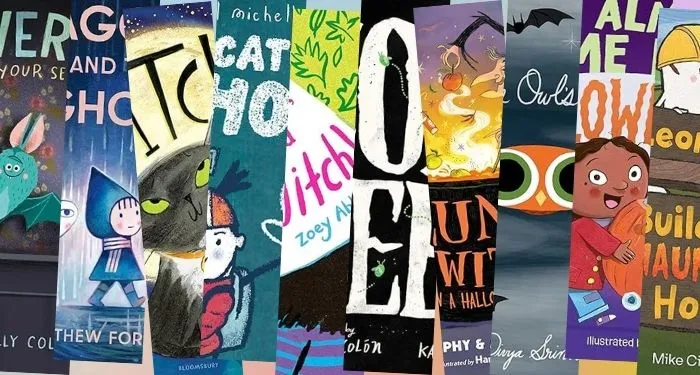Eileen's primary literary love is comic books, but she’s always on the lookout for her next literary adventure no matter what form it takes. She has a Bachelor's in media studies, a Master's in digital communication, a smattering of published short stories, and a seriously cute dog. Follow her on Bluesky.
Four years ago, I discussed the history of copaganda in superhero comics. I reviewed how comics and their adaptations have historically depicted the police and other authorities in an unjustifiably positive light while supporting the idea that it’s okay to violate people’s rights if you claim to have a good reason for it, and how a few stories were inching towards more enlightened storytelling.
A lot has changed since 2021. Has any of it been for the better, at least in terms of copaganda in superhero comics? I decided to find out.
Methodology
My first idea was to read the bestselling superhero titles from 2024 and examine how they depicted the police. Alas, DC and Marvel are stingy with their sales figures, so we don’t know what their bestselling titles are. Instead, I went with Comics Beat‘s multi-pronged analysis of the most popular individual issues from 2024 to select which series to read.
For DC, that worked out pretty well. These are the series I read:
- Absolute Batman (debuted October ’24)
- Absolute Superman (Nov ’24)
- Absolute Wonder Woman (Oct ’24)
- Justice League Unlimited (Nov ’24)
All Access members continue on for more on copaganda in comics
Eileen’s primary literary love is comic books, but she’s always on the lookout for her next literary adventure no matter what form it takes. She has a Bachelor’s in media studies, a Master’s in digital communication, a smattering of published short stories, and a seriously cute dog. Follow her on Bluesky.
Marvel’s most popular books were dominated by Spider-Man and X-Men titles. I wanted a better variety than that, so I went a little deeper into Comics Beat’s analysis to come up with these selections:
- Ultimate Spider-Man (debuted January ’24)
- Uncanny X-Men (Aug ’24)
- Ultimates (Jun ’24)
- Iron Man (Oct ’24)
It’s not surprising that the year’s bestselling books came from new titles: the Big Two are constantly rebooting their series in hopes of getting the sales boost that often accompanies a shiny “#1” on the cover. I read Issues 1 through 6 for each of the above titles, for a total of 48 comics.
Based on my previous discussion of the subject, there are two ways copaganda manifests itself in comics:
- The idea that police officers are trustworthy, law-abiding protectors of innocent citizens. Any police officer who hurts others or breaks the law for their own gain is an outlier, not the result of a system designed to hurt vulnerable people.
- The idea that violating the rights of others and breaking the law is justified when a designated “good guy” — whether police officer or superhero — decides it is.
To save time, I looked only at the first definition in this analysis.
I hadn’t read any of the above titles before, so I went in with no real idea of what I’d find.
Results and Weaknesses
As I noted in my original article, in older comics, it’s very common to find scenes of our heroes dropping off a subdued criminal at the police station or of police officers trying and failing to stop some threat. These panels from Iron Man #45 are fairly standard, although the threat in this case is not a supervillain but human protestors.

The comics I read for this article seem to have pulled back on that, with cops playing a much more minor role generally. Only half the titles I read featured police officers:
1. Absolute Batman is a weird example. It does depict the police as rampantly corrupt and features a very ineffective ex-Commissioner Gordon as mayor. But despite the mess Gotham is in, the comic defends both Gordon and his police officer daughter as honorable people doing the best they can. Focusing on the “good cops” and trying to get us to sympathize with them — and later having another sympathetic character chide justifiably angry protestors for dividing the city and doing exactly what the bad guys want — smacks of copaganda.
Or are we supposed to believe all this corruption sprang up so fast that Gordon couldn’t reasonably have done anything about it during his years and years on the force or during his time as mayor? Or that he was able to become commissioner in a corrupt police force without being corrupt himself?

2. Justice League Unlimited #1-2 gave us Costa Rican police calling in the League when they are overwhelmed and Singaporean police briefly attempting to stop a superhero from helping out. This is a typical, distinctly non-groundbreaking depiction: well-meaning but uninformed and ineffectual officers who have to make way for our heroes.

3. Uncanny X-Men #6 gave us a brief scene where a woman whose child was saved by Nightcrawler bullies the local sheriff — who arrived too late to help anyone — into keeping his mouth shut about the mutants in town. Certainly not flattering, so I wouldn’t call it copaganda.

4. Ultimate Spider-Man didn’t show us any police, but they were said to be in Kingpin’s pocket.

Iron Man was the worst of the bunch, even though no cops appear. In Issues 4 and 5, a group of supposed New York cops called the Heat start imprisoning people of color behind barbed wire. You’d think this would lead to a clear-cut statement against current law enforcement practices, but no: the Heat are former Kingpin lackeys who now work for a racist Latverian. Just like in 1966’s Avengers #32-#33, when Marvel blamed the rise of a Klan-like gang on foreign communist influence, Iron Man cannot bring itself to blame American problems on Americans.

That said, the titles I read were certainly willing to call out other forms of oppression. Ultimates has no time for imperialist, colonialist violence. Absolute Superman gave us a deeply disturbing depiction of the Peacemakers, in which officers who ask for psychiatric help are thrown back into the field to kill again, and of the classist Kryptonian Law Guild.
However, the titles that went the hardest on these topical issues were the non-canon ones: five of the eight titles I read (the Absolute and Ultimate books) took place in alternate universes. Did this affect the outcome of my analysis? Did these creators feel freer to speak out against corrupt systems, even if only through fantastical allegories, than those writing in the main DC and Marvel universes? Or did the most popular books from last year just happen to be the ones that had little or nothing to say about real-life police corruption?
While this isn’t a large enough sample size to be conclusive, the most popular 2025 DC and Marvel comics suggest a certain reluctance to tackle or subvert copaganda head-on. If you pick up a random comic book, it’s more likely than not that it’ll ignore the police entirely. Why? In some cases, like Absolute Wonder Woman, the type of story being told simply didn’t lend itself to featuring or discussing police. More broadly speaking, perhaps these companies don’t want to criticize a still-powerful, real-life institution. Or maybe they’re protecting their bottom line and feel it’s safer to ignore the police’s existence rather than risk getting caught between readers who venerate the police and readers who want a more hard-hitting portrayal.
All excellent questions for another time.
While I was disappointed to see that copaganda is still present in superhero comics, it appears that only a minority of comics embrace this view, and a few actively attempt to grapple with the concept of inherently biased and destructive systems, even if they ignore one notable system (police departments) in particular. Those few give me hope that we are heading in a better direction.
Join All Access to read this article
Get access to exclusive content and features with an All Access subscription on Book Riot.
- Unlimited access to exclusive bonus content
- Community features like commenting and poll participation
- Our gratitude for supporting the work of an independent media company



















 English (US) ·
English (US) ·